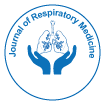Exploring the Depths of Respiratory Pharmacology: Understanding the Breath of Medical Science
Received Date: Jan 02, 2024 / Published Date: Jan 29, 2024
Abstract
Respiratory pharmacology is a multifaceted field that encompasses the study of drugs used to treat respiratory diseases and disorders. The respiratory system plays a vital role in maintaining homeostasis by facilitating the exchange of oxygen and carbon dioxide between the body and the environment. Dysfunction of the respiratory system can lead to a wide range of conditions, including asthma, chronic obstructive pulmonary disease (COPD), pulmonary hypertension, and respiratory infections. Pharmacological interventions are essential in the management of respiratory disorders, aiming to alleviate symptoms, improve lung function, and prevent exacerbations. Bronchodilators, including beta-agonists, anticholinergics, and methylxanthines, are commonly used to relieve bronchoconstriction and facilitate airflow in conditions such as asthma and COPD. Anti-inflammatory agents, such as corticosteroids, leukotriene modifiers, and monoclonal antibodies, help reduce airway inflammation and prevent exacerbations in chronic respiratory diseases.
Additionally, respiratory pharmacology encompasses the use of mucolytics, expectorants, and surfactants to manage conditions affecting mucus production and clearance, such as cystic fibrosis and chronic bronchitis. Pulmonary vasodilators play a crucial role in the treatment of pulmonary arterial hypertension, improving pulmonary blood flow and alleviating symptoms of right heart failure. The development of novel therapeutic agents and targeted drug delivery systems has revolutionized respiratory pharmacology, offering more effective and personalized treatment options for patients. Pharmacogenomic research has furthered our understanding of individual variability in drug response, guiding the selection of appropriate medications and dosages based on genetic factors.
However, challenges persist in respiratory pharmacology, including medication adherence, drug resistance, and adverse effects. Furthermore, emerging respiratory pathogens, such as novel influenza viruses and coronaviruses, highlight the ongoing need for research and development of antiviral therapies and vaccines to combat respiratory infections.
Citation: Himender M (2024) Exploring the Depths of Respiratory Pharmacology:Understanding the Breath of Medical Science. J Respir Med 6: 194.
Copyright: © 2024 Himender M. This is an open-access article distributed underthe terms of the Creative Commons Attribution License, which permits unrestricteduse, distribution, and reproduction in any medium, provided the original author andsource are credited.
Share This Article
Recommended Journals
Open Access Journals
Article Usage
- Total views: 398
- [From(publication date): 0-2024 - Apr 09, 2025]
- Breakdown by view type
- HTML page views: 225
- PDF downloads: 173
